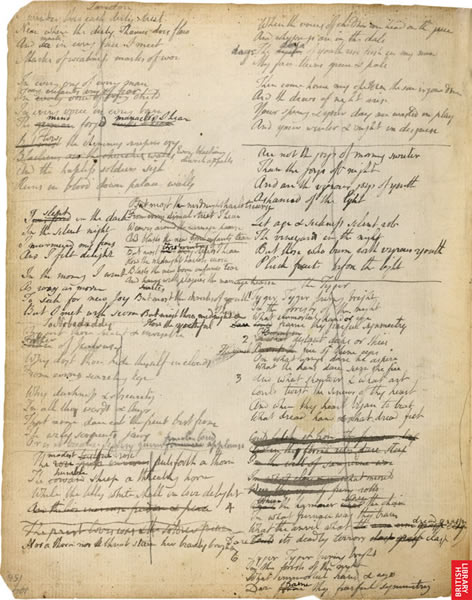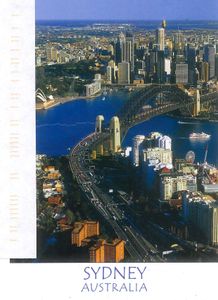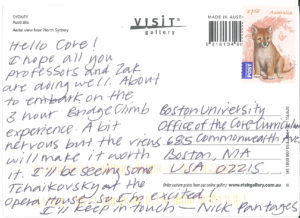April 1, 2013 at 9:26 am
The Core presents an article from The Economist, which discusses enjambment’s popularity and origins. Here is an extract:
In “The Force of Poetry”, Christopher Ricks, formerly the Oxford Professor of Poetry who is now at Boston University, writes elegantly of the way enjambment can make language seem elastic:
Lineation in verse creates units which may or may not turn out to be units of sense; the “flicker of hesitation”…as to what the unit of sense actually is—a flicker resolved when we round the corner into the next line—can create nuances which are central to the poet’s enterprise.
Mr Ricks cites some fine examples, such as John Milton’s use of the device to turn an intransitive verb to a transitive one in two lines from “Paradise Lost”:
Then feed on thoughts, that involuntary move
Harmonious numbers.
For the full article, visit econ.st/YW1HeH
By mdimov
|
Posted in Academics, Art, Friday Fun, Great Ideas, In the News
|
Tagged Christopher Ricks, enjambment, iambic, John Milton, method, news, Paradise Lost, pentameter, poetry, The Economist, tool
|
April 1, 2013 at 9:10 am
Relating to CC202's study of Blake's work, here is an image from 'The Tyger'

William Blake: draft for 'The Tyger' British Library Add. MS 49460, f.56 Copyright © The British Library Board
By mdimov
|
Posted in Academics, Art, Core Authors, Curriculum, Great Personalities, Great Photograph
|
Tagged CC202, Enlightenment, Humanities, image, Modernism, photo, William Blake
|
March 30, 2013 at 2:32 pm

We are excited to report that we have received news from Core alum and current Core House RA Nick Pantages. He writes all the way from Sydney, Australia, where he sounds like he is having a marvelous time. Here's what he has to say:

Hello Core!
I hope all you professors and Zak are doing well. About to embark on the 3 hour Bridge Climb experience. A bit nervous but the views will make it worth it. I'll be seeing some Tchaikovsky at the Opera House, so I'm excited! I'll keep in touch.
- Nick Pantages
* Corelovespostcards. Whether you're at home or abroad now, we'd love to get one from you. Our address is easy: Core Curriculum, Boston University, Boston MA 02215.
By cdossett
|
Posted in Postcards
|
Tagged postcard
|
March 28, 2013 at 2:25 pm
E.E. Cummings' style remains unconventional half a century after his death. Below, is a beautiful example of this- his poem titled '[l(a]'.
l(a
le
af
fa
ll
s)
one
l
iness
To read an interesting discussion of this work, visit bit.ly/11RNSo2
By mdimov
|
Posted in Art, Great Personalities
|
Tagged E.E. Cummings, poet, poetry, style, unconventional, [l(a]
|
March 28, 2013 at 2:13 pm
In his article for the Guardian, Richard Evans discusses the late Eric Hobsbawm's posthumous collection of essays, and how they reflect the changes in the historian's views over time. Here is an extract:
What Hobsbawm's Marxism also did, however, was to turn him from a lifelong optimist – while it was still possible for some to think, even with reservations, that it provided hope for the future – into a bewildered pessimist when it became obvious, from 1990 onwards, that it didn't. Hobsbawm's pessimism comes through in many of the essays in this book more clearly than in any other work he published after the fall of communism. The cultural experience, he says, is "disintegrating". Classical music has no future, only a past. In many parts of the world, state subsidies of the arts are being replaced by market forces, to disastrous effect. ("It is not going to happen in the UK," he says, but in this case he wasn't being pessimistic enough.) Nevertheless, his vision of culture's future is too gloomy. Modernist music may not be very popular in the concert halls, for example (as he repeatedly points out), but it goes out to millions in the form of film scores. Looking around at the visual arts or the theatre, there's not much sign of decline. As so often, his arguments invite as much dissent as agreement, the sign of a truly creative historian. As the American economic historian David Landes once remarked, you come away from a Hobsbawm book feeling like you do after a vigorous game of squash: exhausted and invigorated at the same time.
For the full article, visit bit.ly/XkfD66
By mdimov
|
Posted in Community, Future of the Book, Great Personalities
|
Tagged article, culture, decline, Eric Hobsbawm, essay, historian, history, review, Richard Evans
|
March 27, 2013 at 2:57 pm
Relating to CC202's upcoming study of Nietzsche at the end of this semester is this amusing but informative site: bit.ly/10QJV0h
Enjoy!
By mdimov
|
Posted in Activities, Announcements, Art, Core Authors, Curriculum, Great Ideas
|
Tagged animation, CC202, drawing, fun, Nietzsche, Quotes, site
|
March 27, 2013 at 1:54 pm
In his article titled 'An A from Nabokov', Edward Jay Epstein recounts his experience from Lit 311 at Cornell University, where he studied many of the works that the Core explores in CC202. Here is an extract:
The professor was Vladimir Nabokov, an émigré from tsarist Russia. About six feet tall and balding, he stood, with what I took to be an aristocratic bearing, on the stage of the two-hundred-fifty-seat lecture hall in Goldwin Smith. Facing him on the stage was his white-haired wife Vera, whom he identified only as “my course assistant.” He made it clear from the first lecture that he had little interest in fraternizing with students, who would be known not by their name but by their seat number. Mine was 121. He said his only rule was that we could not leave his lecture, even to use the bathroom, without a doctor’s note.
Compare Core professors and Vladimir Nabokov... any similarities? Any differences?
For the full article, visit bit.ly/11MKnzm
By mdimov
|
Posted in Academics, Core Lecturers, Great Ideas, Great Personalities
|
Tagged CC202, class, Enlightenment, funny, modern, Modernism, strict, teacher, Vladimir Nabokov
|
March 27, 2013 at 1:17 pm
Relating to the Core's study of W.H. Auden is an article about his insistence on memorizing poetry. Here is an extract:
Auden would insist that the boys in his class learn poem after poem by heart. Even parrot-fashion. Auden said it didn't matter whether they understood them. If they learnt the poems now, they would not forget them and maybe, later in life, they would understand them. "It's true," the painter told me, "I can still remember them."
For the full article, visit bit.ly/109BXx1
By mdimov
|
Posted in Academics, Core Authors, Great Ideas, Great Questions
|
Tagged class, learn, memory, poetry, teacher, understand, W.H. Auden
|



